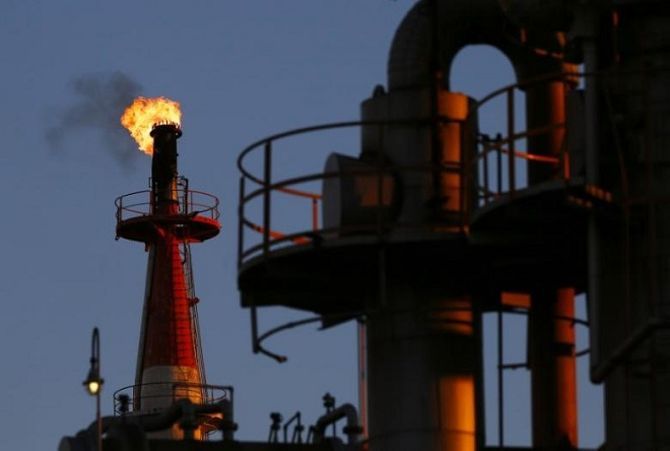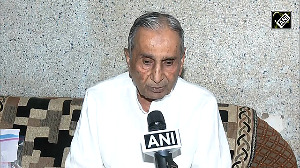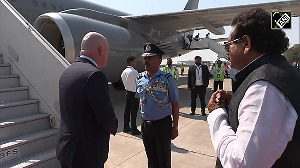Cascading effect of rising raw materials will result in inflation, high rates, slow capex

The commodity price rally has entered its third year of super cycle.
Crude oil and metals have seen sharp gains followed by coal and steel.
What has disturbed markets and emerging economies is the fear of trade wars, which can destabilise market forces.
The rally has also shattered hopes of a revival in capital expenditure (capex), which has been dwindling in the past four years despite the initial euphoria.
Inflation and higher interest rates are also hurting companies and markets.
In about two years, international base metals and crude oil prices are up almost 50 per cent, steel is up 40 per cent and thermal coal 70 per cent.
The only exception is iron ore, which has stabilised at lower levels.
Madan Sabnavis, chief economist at CARE Ratings, explains, “Any recovery in an economy would mean an upward movement in prices as demand increases.
"This holds true, particularly for metals, and hence a global economic recovery starting from the US and spreading to Europe would mean higher prices.
"Being a price taker, such prices automatically enter the Indian inflation indices, which would exert upward pressure.”
However, rising crude oil prices are more worrisome, and marching towards $80 a barrel.
Brent crude oil averaged $49 in FY17 and $58 in FY18, but in April this year, it averaged $71 and are currently around $74.
The problem doesn’t stop here. In India, due to a depreciating rupee against the US dollar, metals, industrial fuels and even diesel have seen sharper increases.
Similar is the case for all base metals. This is certainly inflationary, and is likely to weigh on the profitability of India Inc if companies are unable to pass on cost increases.
T Gnanasekar, director, CommTrendz Research & Fund Management, says, “Rising oil prices are going to be a huge challenge not only to manage current account deficit, but also in reigning in inflation, with the election year ahead.
"Project cost overruns (rising metal prices) could dent the prospects of expansions and make loans costlier.
"With the latest developments in the banking regulations of NPA, it will be all the more difficult to source cheaper funds.”
He says, with rising dollar interest rates, the cost to hedge rupee exposure is also rising.
Sabnavis agrees. “Higher inflation driven by commodities pose a headwind from the point of view of purchasing power as well as monetary policy response where the Reserve Bank of India (RBI) would perforce increase interest rates, which can come in the way of fresh investments.”
However, amid headwinds, for investors there are some sectors which will do well.
Abhimanyu Sofat, vice-president and head, research, IIFL, sees opportunity in oil exploration and IT stocks.
“Elevated oil prices would benefit oil exploration and production companies by way of improved net realisations.
"Falling rupee will be beneficial for IT to some extent. In the current market scenario, we are also positive on metals sector and hotels,” says Sofat, who prefers ONGC, TCS and HCL Technologies.
A few experts like Gnanasekar also feel that if oil prices continue to rise, the government could bring back the regime of pricing regulation for retailing petrol and diesel.
For now, he sees resistance to demand for metals as prices rise.
At higher levels, if demand does not follow, metal prices will moderate.












 © 2025
© 2025